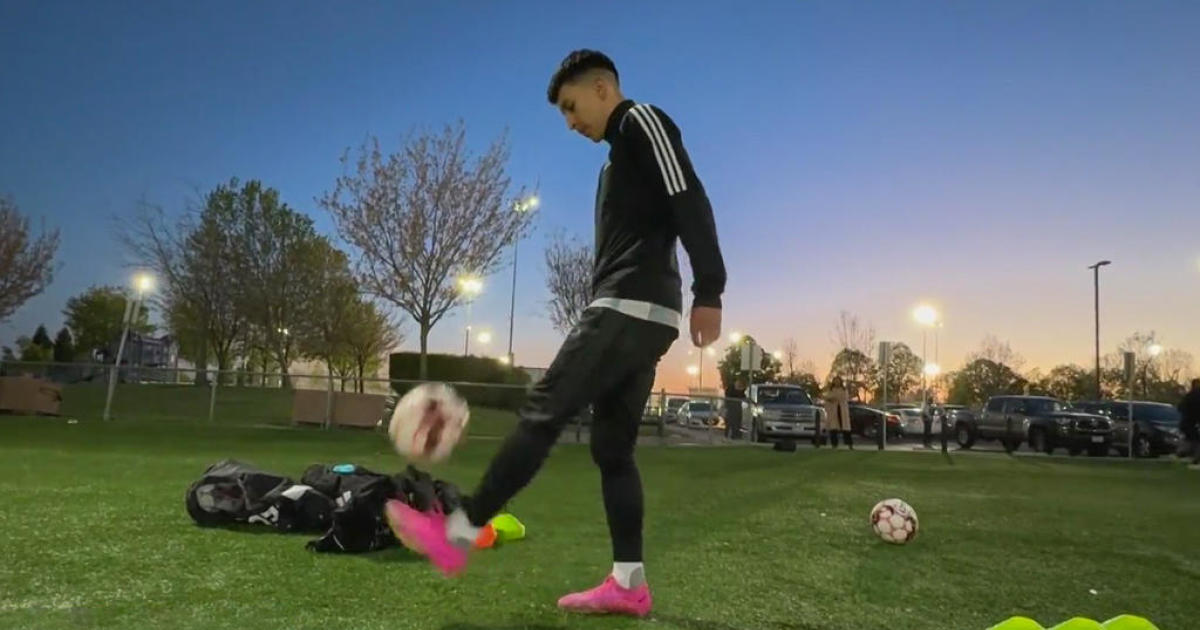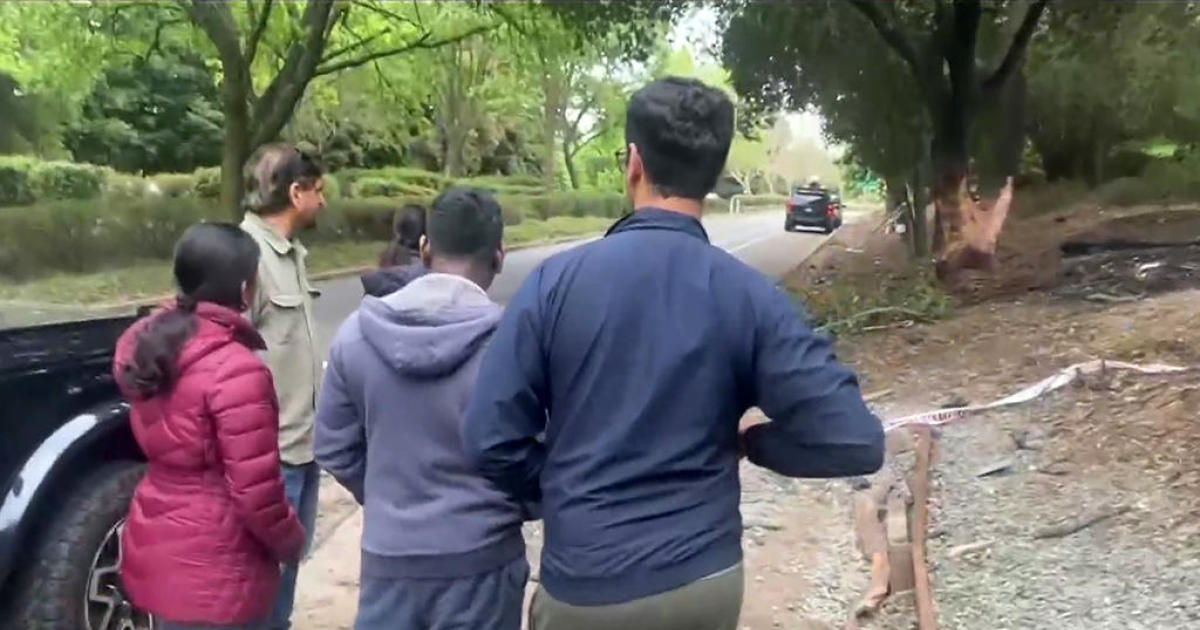Study: Colorectal cancer patients could skip harsh radiation therapy
A groundbreaking medical study involving the UCSF Medical Center has shown some colorectal cancer patients can safely skip radiation treatment and enjoy a potentially higher quality of life.
Radiation treatment has been part of standard treatment for many colorectal cancer patients. The pelvic radiation can instantly throw women into immediate menopause and can dramatically damage sexual function in both men and women.
Dr. Amy Lawson is keeping herself busy, with her knitting needles, and yarn. For the Bay Area pediatrician, it's not easy being a patient. She is getting her second round of chemotherapy to treat her colorectal cancer, which was discovered by accident.
"I was going in for a procedure to look at my esophagus and my doctors said, 'Oh you are over 45, you should get your first colonoscopy," recounted the doctor.
When she woke up from the anesthesia, her doctor told her that the esophagus was fine. But then she heard the frightening diagnosis: the pediatrician had rectal cancer.
"I was just thinking worst-case scenario," Lawson recalled. "What if this is everywhere in my body? Am I going to die? It was pretty horrible."
Fortunately, the cancer had not spread to other parts of her body. But Lawson still needs to undergo intense treatment and that brought up dreadful memories. She had a type of cancer called sarcoma when she was in college.
"I spent a year doing intensive chemotherapy and I did radiation and I had surgery in the middle of it, a full-court press," she said.
But the treatments, while lifesaving, can leave patients with serious side effects and collateral damage. The intense radiation fighting her sarcoma also left Lawson with permanent nerve injury.
"I haven't walked completely normally since then, I have one leg that's a lot weaker than the other," said Lawson.
But this time around, her treatment may not need to be as debilitating thanks to the results of an impressive clinical trial recently presented at the annual meeting of the prestigious American Society of Clinical Oncology and published in the New England Journal of Medicine.
Lawson's oncologist, UCSF specialist Dr. Alan Venook, helped design the study that demonstrated less is more when it comes to treating patients with rectal cancer; that many patients do just as well without receiving radiation.
Radiation treatment, especially for women, involves the pelvis. The treatment can throw women immediately into menopause and damage sexual and bowel function. To safely avoid this treatment could prevent potentially severe consequences.
"Over the years, we've learned that we can cure patients with cancer, but recognize that we may be over-treating patients, doing too much therapy in our zeal to cure patients, perhaps we could get away with less treatment if we were to step back," explained Venook.
The trial followed 1,194 patients over 8 years. In the study, some patients were randomly assigned to one of two groups. One group received standard treatment with involves radiation, surgery, and then chemotherapy if ordered by the oncologist. The other group received chemotherapy first, followed by surgery. A very small number in this group received radiation only if the chemotherapy did not shrink the tumor.
There was no difference in survival between the two groups. However, the group that did not receive radiation reported a far better quality of life.
They suffered less fatigue, impaired sexual function, and nerve damage which is known as neuropathy.
"It's fair to say that every study we do, we look at what we call interim results and right now we are convinced that there is no compromise in patient survival or the risk of recurrent cancer over time. We will make sure that that's the case," said Dr. Venook.
This was welcome news to Lawson who is now taking advantage of the new approach.
"My body's been through all of that. If we can figure out how to do less and it's still safe and there is data behind it, then that's great," she said.
Lawson and Venook are still deciding what she will do next to treat her cancer. It all depends on how her body and tumor respond to the chemotherapy.
In the meantime, Lawson will continue to crochet and hand out little the octopuses she makes to nurses and strangers. She is determined to remain positive, telling me that her positive attitude got her through her last bout with cancer, especially when she was around other people. It was not easy when she was alone.
"But I am trying to experience both sides this time. Let myself be afraid but also get done what I need to get done," said Lawson. "Talk to the people I need to so I can make the best decisions for myself. I won't say it's been easy but I will say I have all the support I need."
The pediatrician knows there is good medicine in making others smile.




